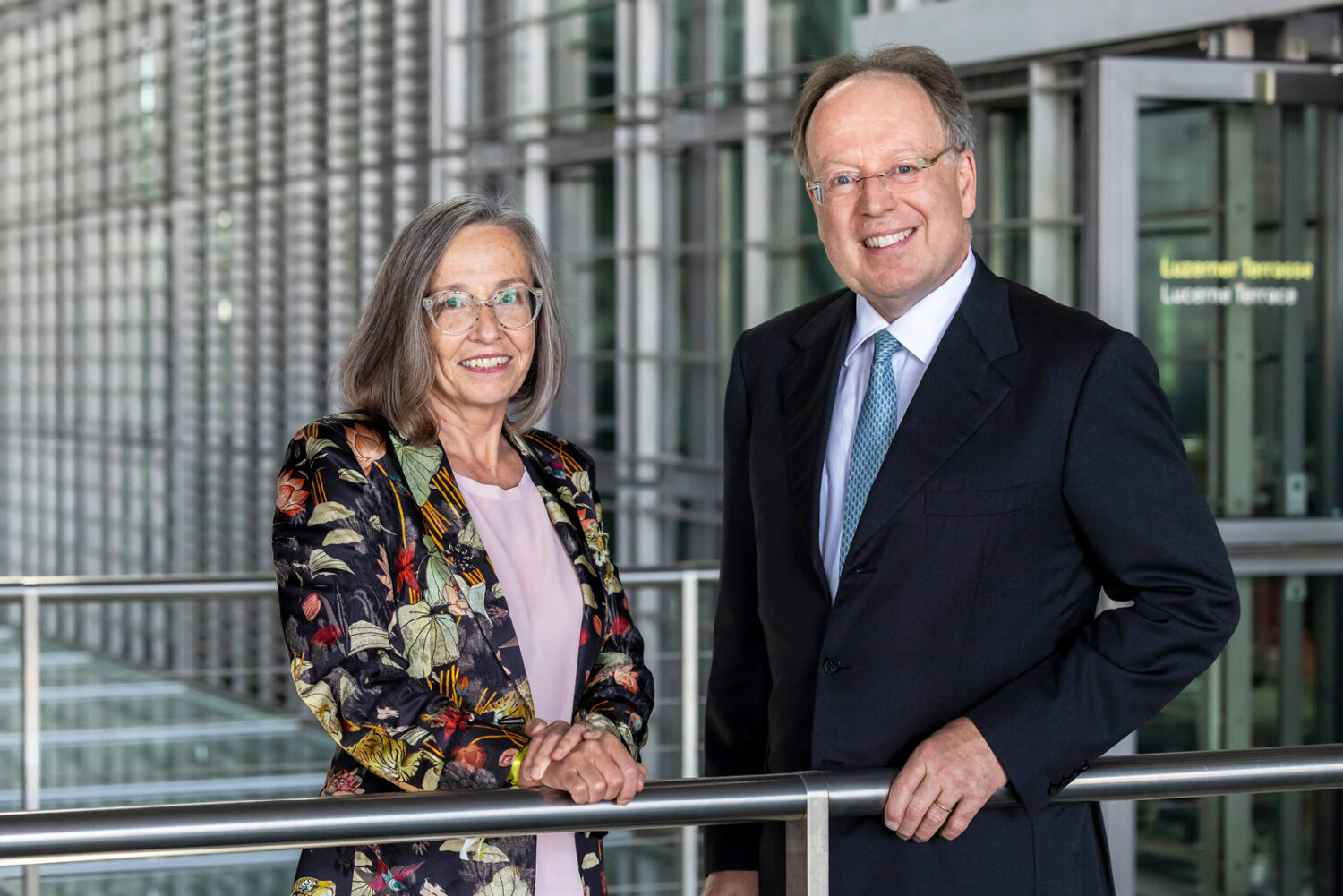
We support Swiss companies to preserve the power of innovation
The year 2021 was also heavily influenced by the COVID-19 pandemic. Annalise Eggimann, CEO, and André Kudelski, President, reflect on why the innovative power of companies is vital to overcoming the crisis and how Innosuisse has been able to respond to the existing challenges.
The second pandemic year showed even more clearly how vulnerable our enormously interconnected world, based on the division of labour, is. Accelerated digitisation means that areas of life that were previously largely protected from criminal attacks are now exposed to new threats. Bottlenecks in global supply chains led to additional slumps in the economy, which had already been battered by the pandemic.
At the same time, solutions for a resource-preserving, climate-neutral way of life must be found quickly and on a global scale so that the earth also serves as a basis of life for future generations.
All these challenges require joint action and innovative solutions. The innovations supported by Innosuisse make an important contribution to this end. Companies are looking for sustainable solutions for their business operations to make their company resilient and fit for the future, and they are enlisting the support of science to help them achieve this.
Interest in innovation promotion continues to grow
Demand for innovation projects – the core of Innosuisse funding – increased by 13.3%. A total of 887 projects were submitted. This also includes projects from the “Innovative Power Switzerland” impulse programme with reduced contributions from corporate partners. Innosuisse was thus able to respond to the COVID-19 pandemic and further support the innovative strength of SMEs.
The increase in funding contributions is even more significant, as projects from the impulse programme are more expensive on average: At 378 million Swiss francs, the demand for project funding is almost 22% higher than the 2020 figures. All other funding instruments also performed well. In Start-up Coaching, the high demand of the previous year was maintained. Innovation mentoring was also in great demand: 25% more mentoring vouchers were applied for.
Many good quality applications were received in the international project funding category. Unfortunately, however, they could not be adequately rewarded, in particular due to financing challenges of the partner countries – for example, as part of the Eurostars-2 programme from the EUREKA funding initiative – causing the funding rate to drop to a low 24%.
New top-down funding
In addition to the proven bottom-up funding, Innosuisse has set thematic incentives for the first time in the 2021 fiscal year with the Flagship Initiative. As part of the first call for proposals, a total of 15 flagship projects with a total funding contribution of around 50 million Swiss francs were approved in October 2021. Within the framework of the flagship projects, the consortia from science and industry will create promising innovations across disciplines and with a systemic approach; for example, digital solutions in the education, tourism, or healthcare sectors or new approaches for the decarbonisation of the economy and society.
Innosuisse gains more flexibility
In the December 2021 session, Parliament approved the partial revision of the Federal Act on the Promotion of Research and Innovation (RIPA), paving the way for further strengthening the innovation promotion by Innosuisse. In future, for example, Innosuisse will also be able to award direct project contributions to Swiss companies in international innovation projects funded jointly with foreign partner organisations. In addition, start-up companies will also be able to claim project contributions directly before entering the market. This will further strengthen the already vibrant start-up scene in Switzerland and make it easier for promising start-ups to venture into their entrepreneurial future.
The provision enabling Innosuisse to directly support highly innovative start-ups and SMEs with project contributions if European funding pots remain inaccessible due to a lack of association with the European research framework programme HORIZON EUROPE is also crucial. This clause was amended by Parliament during the deliberations and adopted unanimously. While this means that direct access to European investment capital remains denied, the measure could open up alternative sources of investment and, in particular, attract national investors – thanks to the quality credentials of Innosuisse’s project funding.